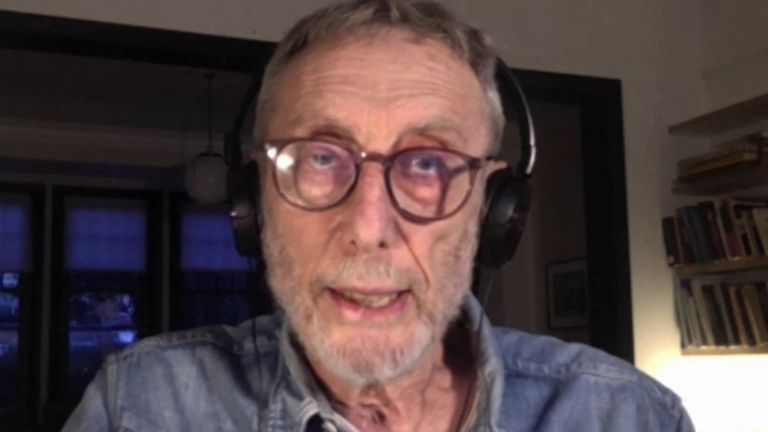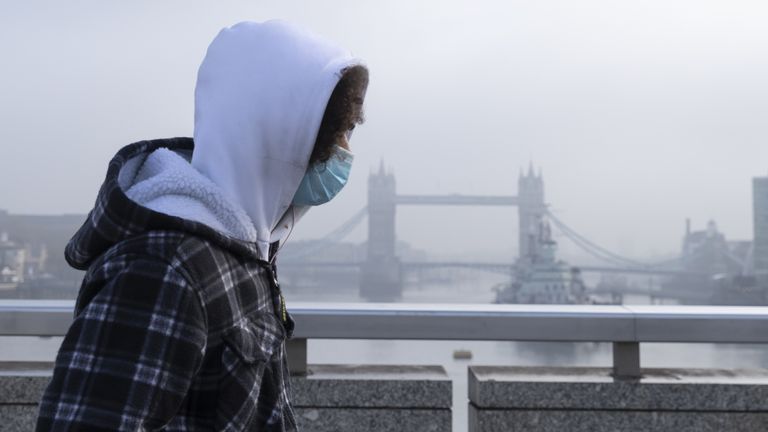The doctor in charge of NHS England’s response to Long COVID has told Sky News that specialist clinics to treat the condition may be needed for “much longer” than current funding allows.
The chair of the National Long COVID Taskforce, Dr Kiren Collison, said the service, which has already been used by thousands of patients, could be needed beyond April next year.
“We recognise this is a condition where the symptoms can be quite prolonged and we’ve already seen that from the patients who got Long COVID a year ago, some people are still suffering, so there is that sort of time frame to bare in mind.
“We suspect it may need to go on much longer than that,” she said.
NHS England has spent £34m on opening 83 clinics, which act as a referral system for those suffering with Long COVID.
“By the end of 2020 we had 69 clinics across the country, which is a huge amount – now we have 83,” Dr Collison added.
“We need to learn and look at what the demand is.
“We haven’t put a lifespan on them…I’m expecting this to last longer but let’s continue to learn and see what the researchers say.
“If the demand is there and they are providing benefit to patients we certainly wouldn’t rule that out.”
NHS England did not have figures available on how many people are using the clinics, which are run by individual NHS trusts.
Sky News obtained the numbers from five of the 83 services, which show that by early March more than 2,200 patients had been treated.
One clinic – run by Sirona Care And Health in Bristol – has seen 200 people with Long COVID since December last year.
Donna Taylor, 45 has been suffering from Long COVID since contracting the virus in March 2020.
“This isn’t my voice. This is my COVID chest,” she told Sky News, her voice croaky and weak.
“I’ve got a continuation of pressure in the chest and inflammation.
“I have quite severe swelling of joints and muscles, swelling of the soft tissue, and I haven’t come out the other side yet.”
Ms Taylor is receiving physiotherapy to help ease her pain.
It is one of a number of treatments being offered to those who have been left with health problems, up to a year after infection.
“I can’t run – I used to run,” she said.
“I did roller-skating, but I haven’t been on them since. I walk short distances around the park.
“It’s disappointing. Keeping fit keeps your mind fit so sometimes there’s a mental struggle.”
At a GP surgery in Weston-Super-Mare, 38-year-old Louise Fletcher is being referred for treatment through the Long COVID clinic system.
“The fatigue is the main thing now,” she said.
“I’ve got a two-year old and a four-year old and it’s just very difficult to get through the whole day. It’s a case of resting in between each activity and not overdoing it.
“I was a busy, working mum. I was always on the go. I’ve had to accept it, but it was a shock to the system.”
Some trying to access Long COVID support have complained about a postcode lottery, with a specialist clinic not being available near them.
Dr Collison said this issue is now resolved, adding: “We’ve always planned to have full national coverage and we’ve been successful that we do now have that.
“In the beginning, as things get established, they [the clinics] may not all be exactly the same, but I think that’s to be expected but we’re certainly working with them so they can offer the range of support we’d like them to.”
Scotland, Wales and Northern Ireland do not operate a specific Long COVID referral system, instead offering help through existing NHS services.


